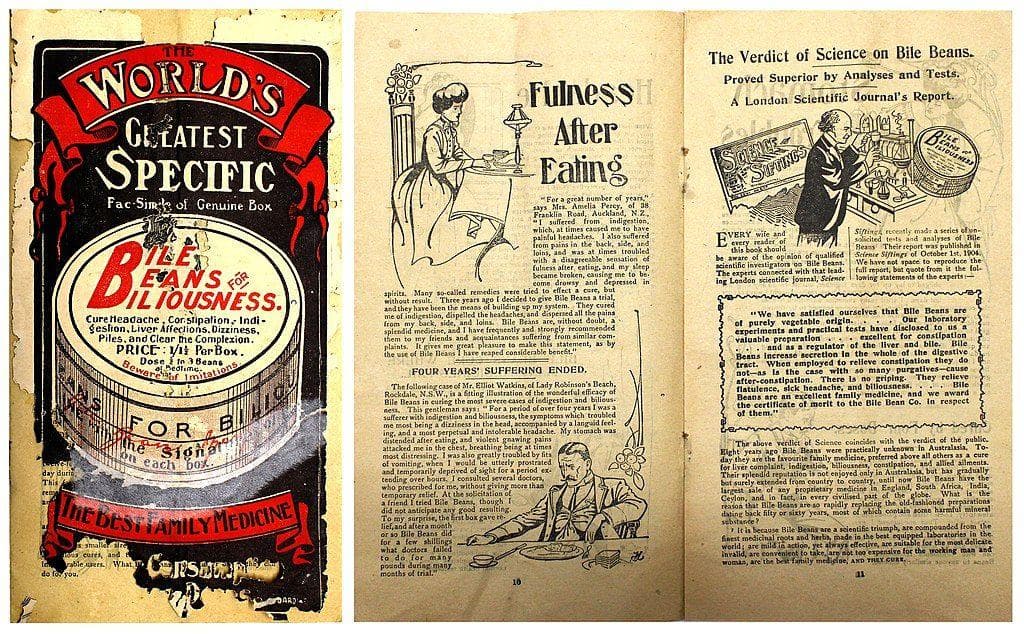-
(#1) Cancer
- cerebella tumor, Medulloblastoma
Men get the short end of the stick when it comes to the big C. Not only are men more prone to certain cancers, like lung cancer, they are also more likely to die from cancer than women.
Men have a 40% chance of getting any sort of cancer (that's one in every three men), and they a 22% chance of dying from it. Women have slightly lower risks; they have a 38% chance of getting cancer and 19% chance of dying from it.
Other than obvious differences in diagnoses (breast, testicular, prostate, ovarian, cervical, and uterine cancers), the main discrepancies include bladder (about three times more likely in men), kidney (about twice as likely in men), liver (about twice as likely in men), and oral (about twice as likely in men).
-
(#2) Parkinson's disease
- Drooling, Hypomimia, Tremor, Hallucination, Akathisia, Akinesia, Weight loss, Intestinal pseudo-obstruction, Urinary incontinence, Loss of smell, Dementia, Nocturia, Ataxia, Postural instability, Gait abnormality, Micrographia, Dysphagia, Seborrheic dermatitis, Amnesia, Fatigue, Bradykinesia, Balance disorder, Dystonia, Somnolence, Constipation
Though it's unclear what causes Parkinson's disease - characterized by slow movements, shakiness, and stiff muscles which are caused by low dopamine levels in the brain - it is clear men are 1.5 times more likely than women to develop the condition.
There are several theories as to why this is. The male sex itself could be to blame, or men could get more head injuries or work with more toxic chemicals, both of which could possibly lead to Parkinson's. Some postulate that estrogen protects a woman's nervous system.
One study from UCLA showed a connection between a sex gene called SRY (the one responsible for making an embryo male) is from the same part of the brain that Parkinson's disease targets. Women do not have the SRY gene.
-
(#3) Amyotrophic lateral sclerosis
- Hyperreflexia, Fasciculation, Slurred Speech, Dysphagia, Spasticity, Dysarthria, Muscle weakness, Monomelic amyotrophy, Muscle Spasms, Muscle atrophy, Weight loss
Amyotrophic lateral sclerosis (ALS), colloquially known as Lou Gehrig's Disease, is a degenerative condition that affects nerves in the brain and spinal cord. Eventually, people with ALS lose the ability to control their muscles voluntarily.
There is no cure or way to slow ALS, and 15 people are diagnosed with it every day. Roughly 60% of those suffer from ALS are men, and ALS is 20% more common in men than in women. No one has any idea why more men than women get ALS, nor do we have any idea why military veterans (particularly those who fought during the Gulf War) are twice as likely to get the disease.
ALS is also the same disease Stephen Hawking had. Hawking was the exception and not the rule when it comes to surviving ALS, however. When ALS begins, most people die within three years. Only 5% will live 20 years or more. Hawking survived with the disease for 55 years and passed away on March 14, 2018, at the age of 76.
-
(#4) Skin cancer
- Skin ulcer, Skin lesion, Melanocytic nevus
Many may associate skin cancer with women, given the tanning bed horror stories many have told. But men are at a higher risk of getting skin cancer, and they're also more likely to die from it.
Melanoma in men has increased an astronomical 150% since 1975, and it's not old men this is affecting. Men who are 15 to 39 are twice as likely to die from melanoma than women in that age range. As for why this is, it could be as simple as men not wanting to wear sunscreen.
It's possible that because men see skincare as feminine, and because women are brought up applying products to their face, men are at a disadvantage. Likewise, makeup for women often contains SPF. About half of men surveyed in 2012 said they hadn't used sunscreen in a year, and 80% said they didn't know how much they should be using anyhow. About 70% of men said they didn't know what warning signs to look for when it comes to skin cancer.
In 2014, Banana Boat came out with a sunscreen for men, complete with a focus group-approved black bottle, as a response to the 2012 survey.
-
(#5) HIV
- Lymphadenopathy, Headache, Flu-like symptoms, Pyrexia, Fatigue, Fever
Men are much more likely to get HIV than women, and gay or bisexual men are much more likely to get HIV than heterosexual men. A 2010 study by the CDC said men who have sex with other men are 44 times more likely to get HIV than a heterosexual man, and they are 40 times more likely than women to get HIV.
One major reason gay and bisexual men are more susceptible to HIV is because it is 18 times more likely to contract HIV from anal sex than vaginal sex (without using protection for either, that is). Cells in the rectum are more likely to get HIV than vaginal cells; semen and the lining of the rectum also carry more HIV than vaginal fluid.
In a study in New Zealand, one in 15 gay or bisexual men had HIV. The same holds true in the United States, where gay and bisexual men account for most of the new HIV diagnoses.
-

(#6) Heart Disease
Though heart disease is the number one cause of death for both sexes, men can get heart disease much earlier than women can; the scales tip around age 55.
Some say it's stress-related, as men may not have ways to express stress like women feel comfortable doing. Abdominal fat is also linked to heart disease; though obesity in general is linked to heart disease, abdominal fat is particularly dangerous for men.
One 2008 study indicated that hormones could make men more predisposed to heart disease at a young age; higher estrogen levels in men were associated with the bad type of cholesterol (the reverse also proved true, that low estrogen levels were linked with the good type of cholesterol). So, a man could be at an increased risk for heart disease well before any symptoms show up.
-
(#7) Lung cancer
- Nail clubbing, Dyspnea, Cachexia, Dysphagia, Fatigue, Hemoptysis, Dysphonia, Wheeze, Cough, Chest pain
In 2018, there were about 10,000 more men than women who were diagnosed with lung cancer, and about 15,000 more men died from it. A man has a one in 15 chance of getting lung cancer, whereas a woman has a one in 17 chance. Smoking increases the risk for both sexes.
About 90% of men who get lung cancer have formerly or are currently smoking, whereas this is true for only about 80% of women who get lung cancer. Likewise, the survival rate for men is lower than it is for women. Black men are 20% more likely than white men to get lung cancer.
But why is lung cancer more deadly for men? It could be related to lifestyle factors, but women can have the same unhealthy habits as a man and still not be as susceptible.
Some experts suspect this sad statistic could simply be because men are more apt to ignore health problems than women. David Foreman, information lead of the National Cancer Intelligence Network, said, "Men have a reputation for having a 'stiff upper lip' and not being as health-conscious as women."
-

(#8) Liver Disease
The differences between liver problems in men and women are complicated. Generally speaking, women are more likely to suffer from the adverse effects of alcohol, as they are usually smaller and have less body water. One expert said a woman will experience double the effects a man does from the same amount of alcohol.
However, men are more likely to get liver cancer than women. Heptocellular carcinoma, or HCC, comprises most liver cancer diagnoses (it can be caused by heptitis B or C, alcohol, or other factors). Men are 60-80% more likely to get HCC, and people under 50, the chances are even worse - men are seven to 10 times more likely get HCC.
It's possible men are more prone to liver cancer than women because women have less of a certain protein. A UCSD Department of Medicine study found that after inducing cancer in mice, 100% of male mice got HCC and only 10-20% of females did. They pinned this on a protein called IL-6, which female mice produced less of than the male mice. When they eliminated IL-6 in male mice, the rates of HCC dropped to the equivalent to that of the female mice.
-
(#9) Autism
- Self-harm, Restricted behavior, Stereotypy, Ritualistic behavior, Compulsive behavior
Boys are five times more likely than girls to have autism; the condition affects one in 42 boys. A 2009 survey in England indicated that 1.8% of men and boys had autism, whereas only .2% of women and girls had autism. Even though girls are less likely to have autism, it's more likely to be severe when they do.
This disparity in autism diagnoses could be due to the fact women and girls hide their symptoms better than men and boys do; multiple experts have said autistic women and girls are never even tested for autism. The fact that the number of women and girls being diagnosed with autism has increased over the years suggests this theory could be true.
But is there a medical cause behind why boys are more likely to get autism? Maybe. Genes for autism are located on the X chromosome; girls inherit one from each parent, and it's possible that the gene from a girl's father protects her from autism in some way. However, this is just a hypothesis.
-

(#10) Kidney Issues
Kidney problems present themselves differently in men and women; women are more likely to have kidney disease, but men are more likely to have kidney failure. There are no symptoms that are specific to men.
However, men who were born with low birth weights are much more likely to have kidney failure. Low testosterone (often found in men with high BMIs and/or diabetes) is also linked to kidney failure.
Men are also more likely to get kidney stones and kidney cancer. Roughly twice as many men get and die from kidney cancer than women.
-

(#11) Hemophilia
Hemophilia, when blood doesn't clot as it should, is caused by a genetic mutation. The genes that control blood clotting are on the X chromosome. Men are much more likely to get hemophilia. In fact, it's pretty rare that a female has it.
For example, if a father's XY chromosomes do not have hemophilia, but the mother is a carrier, there is a 50% chance the son will have hemophilia and a 50% the daughter will be a carrier, but a 0% chance that she actually has the condition.
The condition overall is rare, though. It occurs in one in 5,000 male births. 20,000 men in the US have hemophilia. When women do have a problem with blood clotting, it's usually von Willebrand disease.
-
(#12) Flu
If you're a woman who is with a man, it's completely possible you think he overreacts whenever he's sick. Somehow, a common cold becomes a life-or-death situation.
However, "man flu" may actually be a real thing. Men are more susceptible to respiratory problems in general, and their immune systems could be weaker than women's; estrogen protects the immune system and testosterone actually suppresses it. It's also possible women respond better to vaccines.
New Random Displays Display All By Ranking
About This Tool
Some health problems affect men and women differently, such as heart disease. We all know that hormones drive men and women to show different characteristics, such as women’s breasts becoming larger, men’s muscle mass, and hair growth rapidly. Studies have also found that different hormones can also have a significant impact on the body's immune system, which means that men and women likely to be infected by certain viruses are at different rates.
Gender differences also affect the differences in disease risk to a certain extent. Due to the differences in male physiological structure and behavioral habits, some diseases are more common in men, such as skin cancer. The random tool lists 12 diseases that affect men more.
Our data comes from Ranker, If you want to participate in the ranking of items displayed on this page, please click here.

















